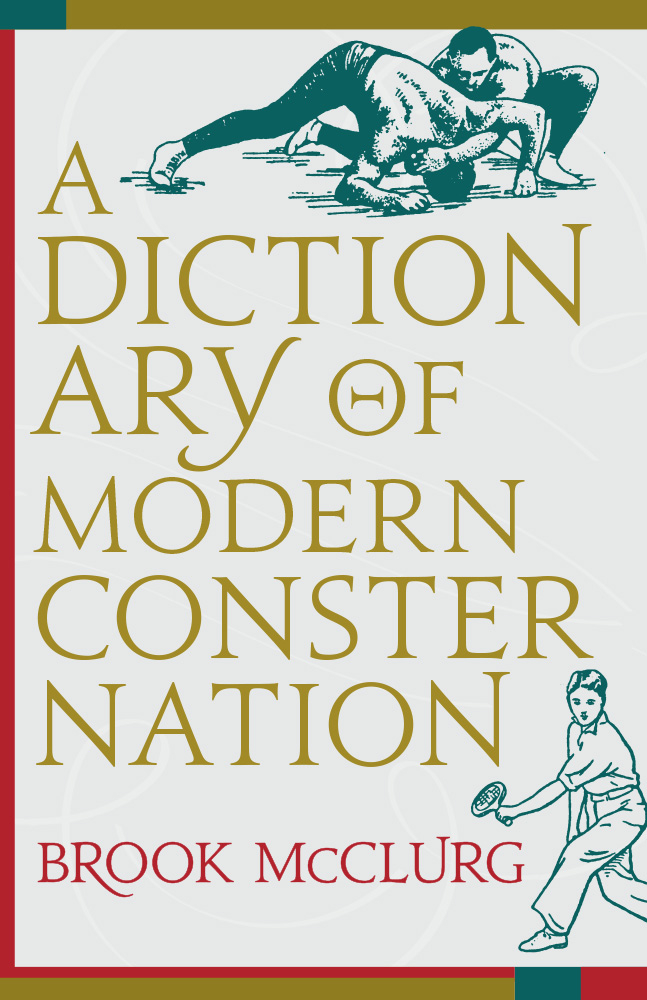Winner of the 2022 Permafrost Prize in Nonfiction
“With verve and finesse, A Dictionary of Modern Consternation reimagines the hybrid, using form to probe the essential paradox of language: how can something so unstable create the conditions for confinement? Part Lydia Davis, part Jenny Boully, and all the way himself, Brook McClurg invites us into the space between distance and intimacy, bone and blood, rock and sky, cracking open the field of the page and giving us a place to wander and transform.”
—Paul Lisicky, author of Later: My Life at the Edge of the World
“A moving memoir that goes far in helping readers make sense of the current period we are living in and brilliantly demonstrates a desire to place some order around a chaotic world.”
—Daryl Farmer, author of Where We Land
“I love it. No other book speaks to our current paradoxical predicament with such an inventive and generous voice. McClurg articulates in neon bright that the promise of authentic joy in our digital, corporate, bureaucratic world has not an ounce of authenticity about it. By undergirding zinging definitions with the story of how he and his partner try to build a real life, McClurg makes us consider the dizzyingly absurd, and, with sheer thoughtfulness and bountiful humor, he steadies us, one letter of the alphabet at a time.”
—Nicole Walker, author of The After-Normal and Quench Your Thirst with Salt and coeditor of Bending Genre
“Both the book’s straightforward explanations and its pithy quips have bite. . . . A wry lexicon with memoir elements, A Dictionary of Modern Consternation places the self in a matrix of political and technological absurdity.”
A Dictionary of Modern Consternation is a genre-bending nonfiction lyric following one family through the years from the financial crisis to the COVID-19 pandemic. In this cheeky dictionary-shaped exploration of how language can often alienate and dehumanize, weakening feelings of community with societal trends that subsume individual lives, Brook McClurg offers a footnote narrative of an international life pursuing the business of words.
What starts as a lighthearted academic exploration becomes real when the pandemic hits—at the letter P—and the ability to treat each other humanely suddenly has grave consequences. Questioning the ways specialized jargon in language—often corporate, legal, and militaristic in nature—encroaches on our feelings of community and responsibility to one another, McClurg employs an abecedarian format, concealing his meaningful and sensitive explorations of personal strife inside a more formal facade. A Dictionary of Modern Consternation reveals its subjective viewpoint and ironic tone over the course of the text, confronting themes of loneliness and isolation, global strife and endless war, and intimacy, love, and family.
With approximately 500 satirical dictionary entries and 143 flash essays as footnotes, this experimental memoir is filled with satirical definitions, pseudo-aphorisms, and inquisitions into words or phrases. A Dictionary of Modern Consternation is for general readers, collectors, book-as-art lovers, and anyone interested in the political economy of language, as well as graduate classes exploring experimental forms.
